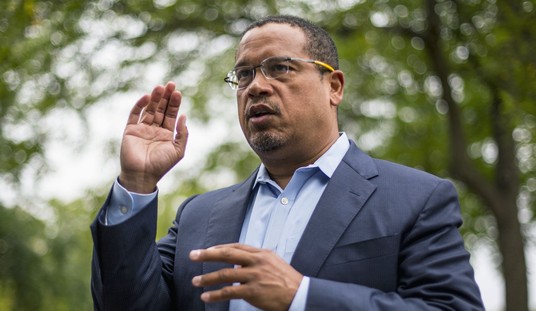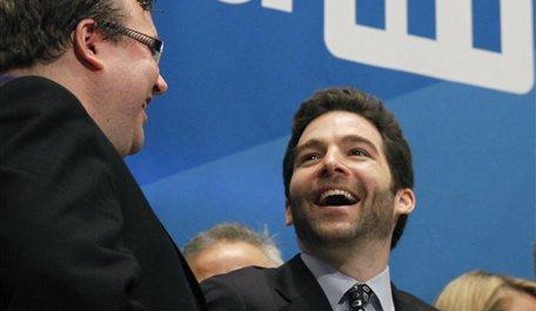Linda Greenhouse is a Pulitzer Prize-winning reporter. Her beat for the NY Times, where she worked for 40 years until 2008, was the Supreme Court. She is also a progressive who has strong personal views on topics she covered, especially Roe v. Wade. Greenhouse’ views were so well known that economist Thomas Sowell coined the term ‘Greenhouse effect’ to describe her purported ability to sway Justices to vote in a more liberal fashion as she doled out favorable coverage. In 2006, the NY Times public editor criticized Greenhouse for a speech she gave at Harvard:
Back on June 7, Ms. Greenhouse gave a luncheon speech before about 800 people at Harvard University after receiving the Radcliffe Institute Medal. But it wasn’t until Sept. 26, when NPR broadcast a story quoting several opinions Ms. Greenhouse expressed in the speech, that a wider audience, including top Times editors, became aware of her comments.
The government, Ms. Greenhouse said on the NPR audio version of her speech, “had turned its energy and attention away from upholding the rule of law and toward creating law-free zones at Guantánamo Bay, Abu Ghraib, Haditha, other places around the world, the U.S. Congress, whatever. And let’s not forget the sustained assault on women’s reproductive freedom and the hijacking of public policy by religious fundamentalism.” She later added, “I feel a growing obligation to reach out across the ridiculous actual barrier that we seem about to build on the Mexican border. …”
The Times’s ethical guideline states that news staffers appearing on radio or television “should avoid expressing views that go beyond what they would be allowed to say in the paper.”
The public editor also noted that Greenhouse had apologized before for participating in a pro-choice march:
There was a more public Times response in 1989 when The Washington Post reported that Ms. Greenhouse and some Post journalists had participated in a march in support of abortion rights. In The Times’s catch-up article, Howell Raines, then the paper’s Washington editor, said of Ms. Greenhouse, “She now acknowledges that this was a mistake and accepts the policy.”
All of that backstory comes to mind as Greenhouse gave an interview to the New Yorker about the future of Roe v. Wade. I’ll pick this up as Greenhouse is in the midst of discussing laws to restrict Roe like the heartbeat law recently signed in Georgia and a much more restrictive law being considered in Alabama.
So you don’t interpret the aggressiveness of these laws as conservatives feeling emboldened and thinking they’re going to overturn Roe?
Well, I think they’re doing a couple things with these laws. They’re appealing to a base. These are politicians who are passing these laws, and these are elected governors who are purporting to sign them. It’s a way of keeping issues hot and alive. It’s also a way of, as we’ve seen throughout this battle, carving abortion out of normal medical practice by turning doctors into criminals for providing a medical service that something like thirty per cent of all American women will avail themselves of during their reproductive lifetimes.
So, there’s something very strange going on here, and I’ll just say that I think laws like this have almost nothing to do with the fetus, or the embryo, or the fertilized egg, and everything to do with the role of women in society today. It’s all about the dignity and agency of the female half of the population. And that’s what’s at stake, frankly.
Greenhouse is, of course, entitled to her opinion. But it’s worth noting that she has just written off the sincere pro-life opinions of nearly half the country. The dismissive claim that these laws have nothing to do with “the fetus” and everything to do with female “agency” could have come from the President of NARAL and would be applauded at Planned Parenthood.
A bit later in the discussion, interviewer Isaac Chotiner even asks if she means to say the people she clearly disagrees with personally are purely being cynical? He also asks if she sees a problem with the process or just with the outcome. The important part about this question is that he can’t tell whether her answers are about the court or her views:
I can guess your opinion of Janus, and also of these abortion restrictions. But is your view that that’s a purely cynical approach and they’re pretending they’re not being as extreme as they are? Or is your view that this is the way the Supreme Court should make law, and it’s proper, but you just don’t like the result?
Her answer is that this is a concerted strategy. Not cynicism but ideology. And notice what she says the response to this should be:
I think, if you look at the cases leading up to the Janus decision, actually, it wasn’t cynical at all. It was totally transparent. Justice [Samuel] Alito, who wrote the initial decisions and ultimately wrote Janus, was completely out front with what he was doing. It was obvious to anybody. It just didn’t happen to be subject matter that the general public was following or was very engaged with.
Cynicism doesn’t quite capture it. I think it’s rather intentionality, and strategy, and playing a long game. I think it would be quite clear what they would be doing, because these obstructive laws are inconsistent with settled precedent. They’re inconsistent with Planned Parenthood v. Casey, which was the case, in 1992, where the Court reaffirmed the right to abortion at a moment when everybody thought they were about to overturn it. It would be totally out there, front and center. And it would fall to those of us who think about and write about this subject to make sure that the public understands what’s happening.
In other words, those who agree with Greenhouse and have jobs writing about the Supreme Court need to make sure “the public” knows about this. You can probably guess which half of the public she wants to alert. It’s not the people she thinks are dishonestly claiming to be pro-life.
I guess there are no genuinely shocking revelations here, just a reminder that the line between progressive activist and award-winning reporter is often fairly thin. No conservative who took an equally hard line view on the pro-life side would ever be hired at the Times for anything much less to cover the Supreme Court. And if they were, you can bet a host of progressives would demand they be fired before publishing a single piece.








Join the conversation as a VIP Member